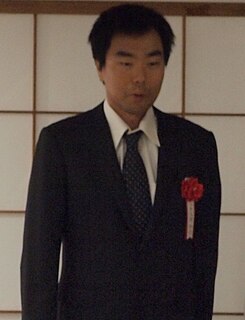
Konqueror is a free and open-source web browser and file manager that provides web access and file-viewer functionality for file systems. It forms a core part of the KDE Software Compilation. Developed by volunteers, Konqueror can run on most Unix-like operating systems. The KDE community licenses and distributes Konqueror under GNU GPL-2.0-or-later.

Calligra Suite is a graphic art and office suite by KDE. It is available for desktop PCs, tablet computers, and smartphones. It contains applications for word processing, spreadsheets, presentation, databases, vector graphics, and digital painting.
In computing, a desktop environment (DE) is an implementation of the desktop metaphor made of a bundle of programs running on top of a computer operating system that share a common graphical user interface (GUI), sometimes described as a graphical shell. The desktop environment was seen mostly on personal computers until the rise of mobile computing. Desktop GUIs help the user to easily access and edit files, while they usually do not provide access to all of the features found in the underlying operating system. Instead, the traditional command-line interface (CLI) is still used when full control over the operating system is required.

Calligra Stage is a free presentation program that is part of the Calligra Suite, an integrated office suite developed by KDE.
Eco may refer to Ecology or Economics. It may also refer to:
Nas is the stage name of American rapper Nasir Jones.
Francisco Javier de la Rosa is a Spanish lawyer and businessman.
Amahiko Satō is a Japanese professional shogi player, ranked 9-dan. He is a former Meijin title holder.

Toshiaki Kubo is a Japanese professional shogi player ranked 9-dan. He is a former Ōshō and Kiō title holder.

Akira Watanabe is a Japanese professional shogi player ranked 9-dan. He is the current holder of the Meijin, and Kiō major titles, and also a former holder of the Kisei, Ōshō, Ōza and Ryūō titles. He is also a Lifetime Kiō and a Lifetime Ryūō title holder.

Yasumitsu Satō is a Japanese professional shogi player from Yawata City in Kyoto Prefecture, Japan. He is currently the president of the Japan Shogi Association. He became a professional in 1987 and is ranked 9-dan. He has won 13 major titles, is a former Meijin title holder, and has qualified for the Lifetime Kisei title.
Nobuyuki Ōuchi is a deceased Japanese professional shogi player who achieved the rank of 9-dan.He won the first Kiō title in 1976, and also served as senior managing director of the Japan Shogi Association from 1993 to 1999. He was awarded the Japanese government's Order of the Rising Sun in 2015.
Shōta Chida is a Japanese professional shogi player, ranked 7-dan. Chida is known for his novel research into shogi opening theory using computer shogi engines.

Hiroyuki Miura is a Japanese professional shogi player, ranked 9-dan. He is a former Kisei title holder and became the first active Class A professional to lose to a computer when he lost to the GPS Shogi program in April 2013.

Masataka Gōda is a Japanese professional shogi player, ranked 9-dan. He is a former major title holder, having won the Ōi, Kisei, Kiō and Ōshō titles throughout his career.

Kiyozumi Kiriyama is a Japanese professional shogi player ranked 9-dan. He is a former Kisei and Kiō major title holder as well as a former director of the Japan Shogi Association. As of February 2022, Kiriyama is the oldest active professional shogi player.
This page is based on this
Wikipedia article Text is available under the
CC BY-SA 4.0 license; additional terms may apply.
Images, videos and audio are available under their respective licenses.







